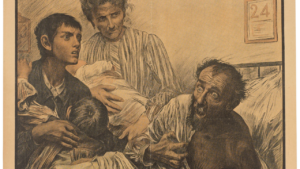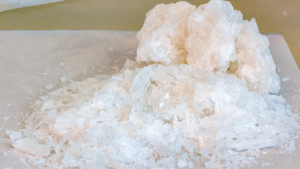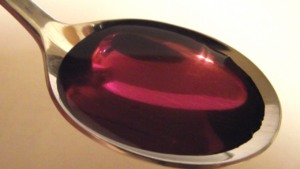Cocaine is a stimulant drug that can have some serious impacts on the brain and body of anyone who consumes it. This is especially true if the person is a habitual cocaine consumer. While most Ohioans are very aware of the opioid problem in our state, according to the National Drug Intelligence Center, more than twice as many Ohioans enter treatment for cocaine addiction than heroin.
As is the case with many other drugs and harmful substances, over time, the body and brain become accustomed to the presence of cocaine in the person’s system. When that drug is suddenly removed from the body, it can lead to a whole host of negative symptoms we refer to as “withdrawal.”
With some addictions, the symptoms of withdrawal can be extremely uncomfortable and even deadly. The withdrawal symptoms of cocaine are not generally believed to be life-threatening. That said, they can be very uncomfortable if the person does not detox under the close supervision of medical professionals.
Do you think that you or a loved one may need cocaine addiction treatment? Call us at 850.374.5331 to find out.
Symptoms of Cocaine Withdrawal
While the withdrawal symptoms of some drugs, such as benzodiazepines or alcohol, can be potentially fatal, cocaine’s withdrawal symptoms are generally not believed to be fatal. That said, cocaine withdrawal does come along with a very unpleasant set of physical and psychological symptoms. These symptoms include:
- Anxiety
- An increase in appetite
- Agitation or irritability
- Anhedonia (the inability to feel pleasure)
- Body chills and sweating
- Trouble concentrating
- Intense drug cravings
- Vivid and intense dreams
- Depression
- Insomnia (the inability to sleep)
- Mood swings
- Muscle aches and motor skill impairment
- Paranoia (fear of someone or something)
- Sleepiness
The physical withdrawal symptoms of cocaine are minimal, but the psychological symptoms can be intense. Perhaps the most concerning of all withdrawal symptoms associated with cocaine is an increased risk of suicide and suicidal thinking. When someone is withdrawing from cocaine, they can go through severe depression, anxiety, and mood swings. The lack of dopamine in a person’s system can lead to a temporary dissatisfaction with life and an increase in suicidal thoughts.
Because of this, it is highly suggested that anyone looking to quit cocaine should undergo detox at a licensed addiction treatment facility. Many addiction treatment facilities offer medically supported withdrawal. This means they will give the person certain medications that help relieve the physical and psychological symptoms of withdrawal.
Factors That Can Affect Cocaine Withdrawal
The worst symptoms of cocaine withdrawal typically resolve themselves after about seven to 10 days have passed since the last dose. The timeline actual for cocaine withdrawal will vary from person to person based on a number of factors. Some of these factors include:
Length of Habitual Consumption
For someone who has just started consuming cocaine, the length of time they will feel the effects of withdrawal will be relatively short. If the person has been habitually taking cocaine for years, these symptoms will last much longer. This may be due to the drug building up in the body over a long period of time.
Average Dose
As logic would suggest, someone who takes large amounts of cocaine in each dose will experience stronger and longer-lasting effects of cocaine withdrawal.
Polysubstance Dependence
Polysubstance addiction refers to when a person is physically dependent on more than one drug or substance. In many cases, someone who is dependent on cocaine may also be dependent on alcohol (many people drink alcohol to combat the “come down” effects of cocaine). When that person stops taking both (or all) drugs, they will experience the unique withdrawal symptoms of both, leading to a potentially complex and difficult detox period.
Co-occurring Mental Health or Medical Disorders
A person is suffering from co-occurring issues if they suffer from a substance use disorder and a medical or mental health disorder at the same time. Medical issues, such as heart problems, can complicate the cocaine withdrawal process. Co-occurring mental health issues, such as anxiety or depression, can also lead to psychological difficulties when attempting to stop a cocaine habit.
Cocaine Addiction Treatment in Ohio Starts with Medically Supervised Detox
At The Bluffs, medically supervised detoxification is the first step in treatment for people struggling with drug addiction. The goal of detox is to rid any of the toxic substances from the body. This is the first step toward the larger goal of recovery.
Our staff will help ensure our clients are as comfortable as possible during their detoxification and prepare them for residential treatment. Usually, the process of getting the substance out of the body’s systems is the easiest phase of detox. Most of the challenges in the detox process come from the withdrawal symptoms and cravings that set in.
The next phase of detox is the most unpleasant for most people. At this time in the process, individuals will experience very strong cravings for the drug. It’s very normal to experience irritability and moodiness while the cravings go unsatisfied. This is why we have our experienced staff on hand to help attend to our clients and make them as comfortable as possible as they undergo detox. Once withdrawal symptoms have calmed down, detox professionals can evaluate a patient’s needs and begin to transition them into therapy, the next step in drug addiction treatment.
Reclaim Your Health With Treatment for Cocaine Addiction at The Bluffs
At Vertava Health, we consider each person’s unique experience with addiction and create a treatment plan just for them. Our inpatient rehab program deals with symptoms of addiction as well as the factors in someone’s life that cause or contribute to harmful substance misuse. Yoga, hiking, and other recreational activities provide a healthy alternative to consuming cocaine for the stress relief many people seek.
Our long-term program gives each person the time and support they need to transition from crippling addiction to lifelong recovery. Our treatment center is ready for you. Make the call today at 850.374.5331.







